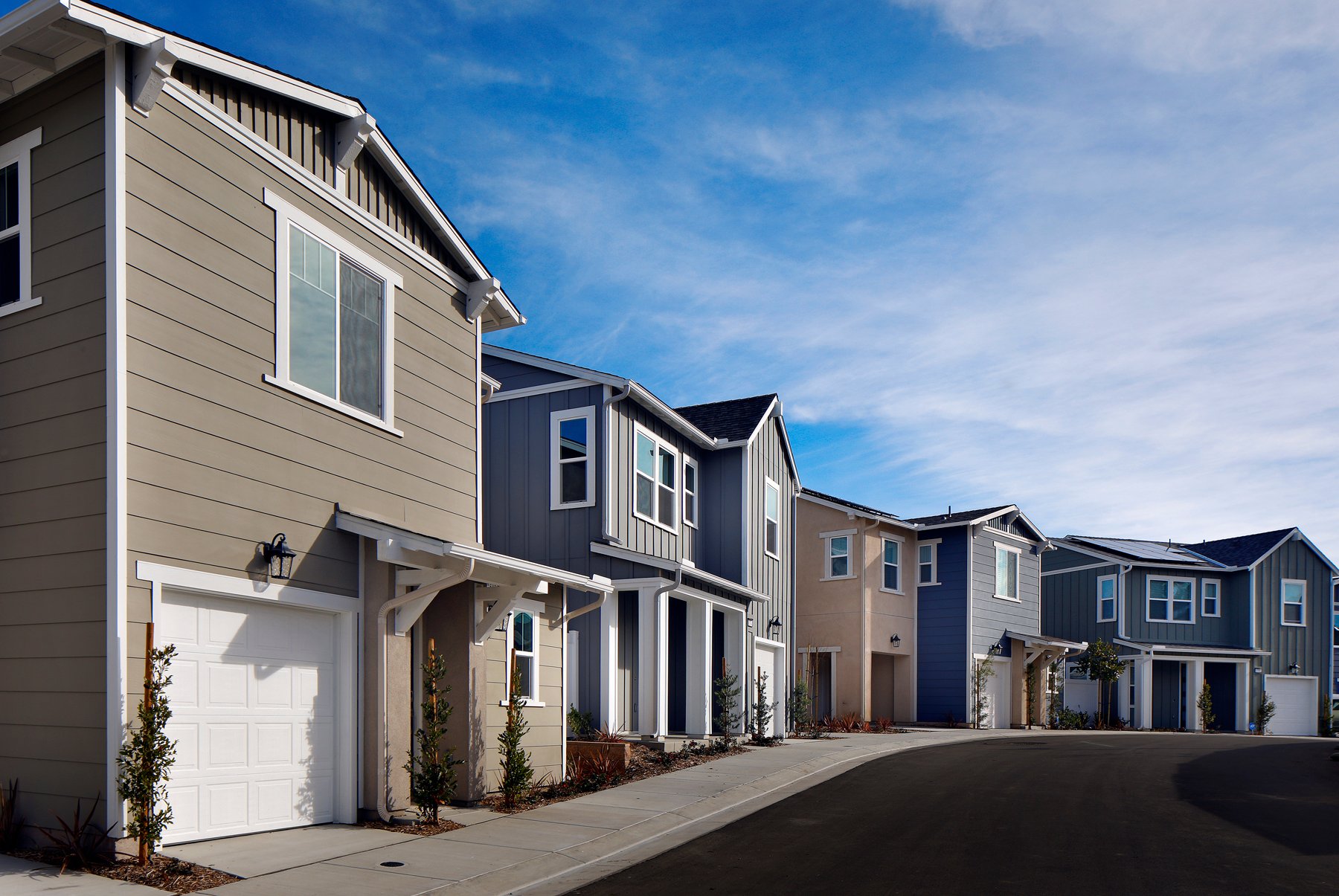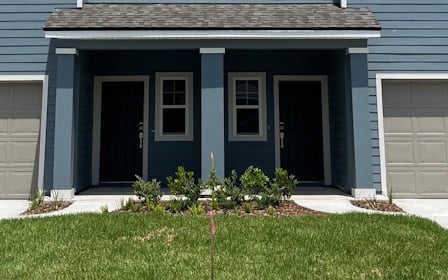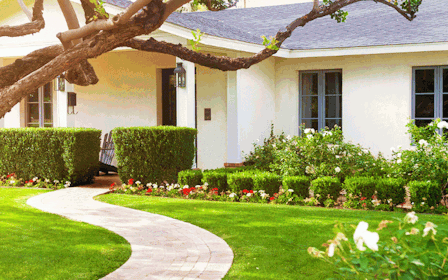If you’re actively searching for your dream home, you’ve likely encountered various housing types, including traditional homes, townhouses, and condominiums. While standard single-family homes remain a popular real estate choice nationwide, detached condos are also gaining traction, especially among buyers seeking a blend of convenience and community amenities.
This growing interest has prompted many homebuyers to weigh the differences between detached condos and traditional homes. In this article, we’ll explore the distinctions between these two property types, highlighting the benefits and disadvantages of detached condos. Keep reading to learn more about detached condos, how they stack up against other housing options, and how to determine if buying one is the right decision for you.
 What Is a Detached Condo?
What Is a Detached Condo?
A detached condominium, also known as a standalone or free-standing condo, is a hybrid between a standard home and a traditional site condo. While these unique properties don't share exterior walls with neighboring units and look like conventional homes, they are part of a larger condominium community usually governed by a homeowner’s association (HOA) (sometimes called a condo association).
Some other defining characteristics of a detached condo include:
- Ownership: Detached condo owners typically own the interior of their home but not the land or lot it sits on. Instead, this land is considered part of the housing community and managed by the HOA.
- Maintenance: The HOA of a condominium community typically handles all exterior maintenance, including landscaping, snow removal, and the upkeep of shared amenities.
- Community: Condominium communities are usually similar to traditional neighborhoods, but they have shared amenities and infrastructure managed by the HOA.
 The Differences Between Detached Condos and Traditional Homes
The Differences Between Detached Condos and Traditional Homes
While detached condos and traditional homes are standalone structures that don’t share exterior walls with neighboring units, they differ in several key areas. The primary distinctions between these two real estate options are their ownership structure, maintenance responsibilities, associated fees, and amenities.
- Ownership structure: Owners of traditional homes own both the interior and exterior of the property, including the land it sits on. Owners of detached condos typically only own the interior, while the HOA owns the land and any exterior elements.
- Maintenance responsibilities: Traditional homeowners are generally responsible for all maintenance and upkeep of their property, inside and out. In contrast, the HOA in a detached condo community usually handles all exterior maintenance, including but not limited to landscaping and upkeep of shared amenities.
- Associated fees: Many traditional homes may or may not be part of an HOA community, depending on the neighborhood. However, if a traditional home is within an HOA, fees are often lower than in detached condo communities. Detached condo owners generally incur higher HOA fees to cover the cost of all exterior maintenance.
- Community amenities: Detached condo communities often feature shared amenities like pools, gyms, recreation centers, parks, walking trails, and clubhouses. Some traditional home communities also offer amenities if they’re a part of an HOA. When looking at new homes, these options can often vary greatly. Century Communities and Century Complete often offer traditional single-family homes and townhomes with a variety of community amenities, so HOA fees can vary greatly depending on the amenity offerings.
 How to Decide on Buying a Detached Condo
How to Decide on Buying a Detached Condo
Choosing the right type of home can be challenging, especially when comparing a wide variety of property types. Detached condos combine the privacy of a single-family home with the convenience of condo living. However, detached condos are not ideal for everyone. The best way to decide if a detached condo is right for you is by comparing the benefits and disadvantages of owning one.
The Benefits of Owning a Detached Condo
Detached condos come with several unique advantages that can appeal to different buyers:
- Low maintenance: When you purchase a detached condo, the HOA usually covers exterior maintenance and landscaping. This can be a significant benefit, especially if you’re a busy professional, recent retiree, or simply looking for a low-maintenance lifestyle.
- Increased privacy: Compared to a townhouse or traditional condo, detached condos offer more privacy since they don’t share walls with neighboring units. This increased privacy can make condo living practically indistinguishable from living in a standard home.
- Amenity access: Many condominium communities include shared amenities such as pools, fitness centers, walking trails, and clubhouses. These amenities add value to your investment and provide convenient options for recreation and socializing.
- Sense of Community: Living in a detached condo community offers the opportunity to build connections with neighbors. Shared amenities and common areas encourage social interaction, fostering a welcoming community atmosphere.
The Cons of Owning a Detached Condo
While detached condos offer many appealing features, there are some potential drawbacks you should consider before making your decision:
- Less control: When you live in a community managed by an HOA, you relinquish some control over your living environment, especially over the exterior appearance of your property. This arrangement can feel restrictive to buyers who prefer to personalize the exterior of their home.
- Condo association fees: Condo owners have to pay regular fees to the condo association. These fees cover maintenance of amenities, shared areas, and general upkeep around the community.
- Additional restrictions: Some detached condo communities may also be managed by an HOA with strict rules for everything from landscaping to noise levels. For homeowners who value flexibility and autonomy, these regulations can feel restrictive and may not align with your personal preferences.
- Community environment: While many enjoy the sense of community that comes along with condo living, others may find it limiting. Shared spaces and close neighbors may not suit you, especially if you’re seeking a more secluded living arrangement.
Finding Your Dream Home: Detached Condos and More
Purchasing a home is a deeply personal decision, and choosing between a detached condo and other housing options depends on your priorities and lifestyle. Detached condos balance privacy and convenience, making them a compelling choice for those who value low-maintenance living and community amenities. However, they might not be the ideal property type if you prefer greater autonomy or fewer restrictions.
Ultimately, the right home is one that aligns with your needs, goals, and vision for the future. Whether you’re drawn to the flexibility of a traditional home or the streamlined convenience of a detached condo, taking the time to weigh your options ensures a decision you’ll feel confident about.
If you’re ready to explore your options, Century Communities offers a variety of new homes with modern designs, spacious layouts, and desirable features. Use our Find Your Home feature to discover your perfect match today.
Detached Condos FAQ
Are detached condos less expensive than a traditional home?
Yes, detached condos are generally less expensive than traditional homes. According to Rocket Money and the National Association of Realtors, in 2023, the average sales price of a condo in the United States was $357,600, while the average sales price for a traditional, detached home was $412,300.
Who are detached condos best for?
Detached condominiums are great for a variety of homeowners. For first-time home buyers, detached and traditional condos can be great first homes because of their low maintenance and upkeep. Other home buyers may prefer condo living for the sense of community.
What is the difference between a condo and a townhouse?
The main difference between a condo and a townhouse is ownership. Like traditional homeowners, most townhouse owners own the interior and exterior of their home and the land on which it sits. Condo owners typically only own the interior of their home.



